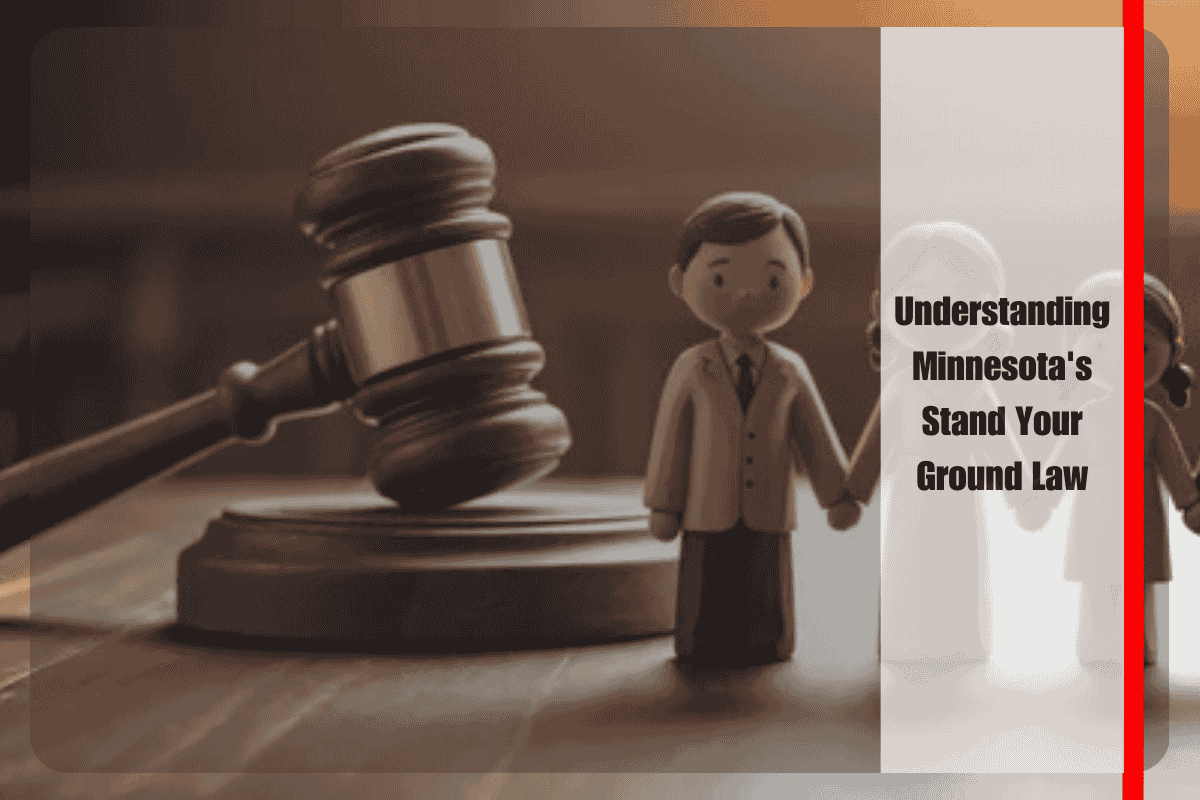Minnesota’s “Stand Your Ground” law, like those in other states, allows individuals to use force, including deadly force, in certain situations to protect themselves from imminent harm. This law often generates significant debate, particularly regarding the legal and ethical implications of using force in self-defense. Understanding when and how this law applies is crucial for Minnesota residents to ensure they are within their legal rights and can respond appropriately in dangerous situations.
What is Minnesota’s Stand Your Ground Law?
Minnesota’s self-defense laws are based on the concept of using reasonable force to protect yourself or others from harm. The “Stand Your Ground” law, specifically, eliminates the duty to retreat when faced with a threat of harm in certain situations. Before this law, individuals had a duty to retreat from a dangerous situation, if possible, before using force in self-defense. The law now allows individuals to use force to protect themselves without the obligation to retreat, provided they are in a place where they have a legal right to be.
Key Provisions of the Law
Under Minnesota’s version of the law, you are justified in using force, including deadly force, if:
- You are in a place where you have a legal right to be.
This could be your home, workplace, or another place where you are lawfully allowed to be. The law does not apply if you are trespassing or otherwise unlawfully present at the location where the threat occurs. - You are faced with an imminent threat of bodily harm or death.
The law applies only when there is a real, immediate threat to your safety. Using deadly force is considered acceptable if the threat is severe enough to reasonably fear for your life or safety. - You do not have to retreat.
Previously, in situations where a person could safely retreat to avoid confrontation, they were required to do so. With the “Stand Your Ground” law, there is no duty to retreat if you are in a lawful location. You can defend yourself directly, without trying to escape the situation first. - You have not provoked the conflict.
If you initiated or provoked the confrontation, you might not be justified in using force under the law. You cannot claim self-defense if you started the conflict or escalated it to a violent situation.
When Can Deadly Force Be Used?
Deadly force is allowed under Minnesota’s Stand Your Ground law only when the person has a reasonable belief that it is necessary to prevent death or great bodily harm to themselves or others. The use of deadly force must be proportionate to the threat faced. If you are being attacked with a weapon, such as a knife or gun, and you fear for your life, deadly force may be justified. However, if the threat is not immediately life-threatening, using deadly force could be considered excessive and may not be legally justified.
Exceptions and Limitations
While the law provides broad protections for self-defense, there are some important exceptions and considerations:
- Not a License for Vigilantism:
The law does not give individuals the right to act as vigilantes or use force in situations that do not involve imminent danger. Using force to stop a nonviolent threat or in a situation that does not involve immediate danger may result in criminal charges. - Use of Force Against Law Enforcement Officers:
The law does not permit the use of force against law enforcement officers in the execution of their duties. If law enforcement is attempting to arrest you or otherwise acting within their legal rights, you cannot claim self-defense under the Stand Your Ground law. - Castle Doctrine:
Minnesota also follows the “Castle Doctrine,” which is a principle that allows homeowners to use force to protect their home without the duty to retreat. If someone unlawfully enters your home, you are permitted to use force to protect yourself or others in your home. - Proportionality:
The force used must be proportionate to the threat. Deadly force is only allowed when there is a reasonable belief that you are in danger of death or serious injury.
Legal Consequences of Using Force
Even though the Stand Your Ground law provides individuals with the legal right to defend themselves, it’s important to note that the use of force will still be evaluated by law enforcement and the courts. You may still be arrested or charged with a crime, even if you believe your actions were justified under the Stand Your Ground law. It is crucial to have legal counsel if you are involved in an incident where you used force to defend yourself.
Minnesota’s Stand Your Ground law provides significant protections for individuals who use force in self-defense, but it is essential to understand when and how the law applies. The key factors are being in a lawful location, facing an immediate threat of harm, and using reasonable force to protect yourself. However, misuse of the law can result in criminal consequences. Always make sure that your actions are justified and consider consulting with a legal professional to better understand your rights and responsibilities under this law.
Sources
[1] https://arechigo-stokka.com/blog/minnesota-self-defense-laws/
[2] https://en.wikipedia.org/wiki/Stand-your-ground_law
[3] https://giffords.org/lawcenter/state-laws/stand-your-ground-in-minnesota/
[4] https://www.house.mn.gov/sessiondaily/Story/18532
[5] https://protectmn.org/stand-your-ground-bill-talking-points












